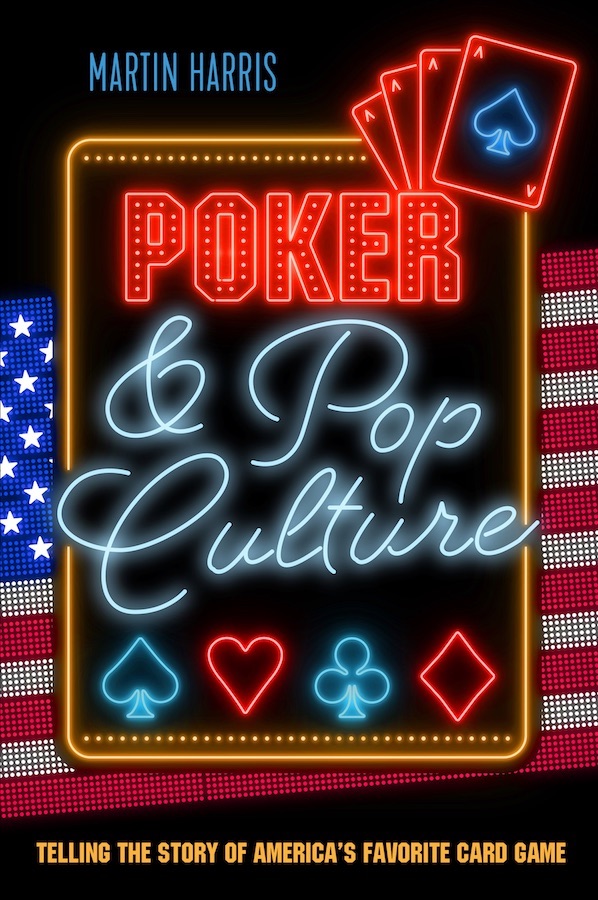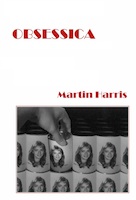PLO Puzzle (2 of 2)
 Great feedback, guys, to yesterday’s puzzle. Much appreciated. So my three questions were . . .
Great feedback, guys, to yesterday’s puzzle. Much appreciated. So my three questions were . . . (1) What do you think my opponents have?
What did I think? Brigid O’Sh. made that preflop raise, then with two players behind checked that


 flop. Whatever Brigid has, I’m reasonably certain I like the flop better than she does. She could be lying there in the weeds with a set, but I’m going to guess she had more than a pair of eights or sevens to make the mid-position preflop raise. (Could also have a big wrap, of course.)
flop. Whatever Brigid has, I’m reasonably certain I like the flop better than she does. She could be lying there in the weeds with a set, but I’m going to guess she had more than a pair of eights or sevens to make the mid-position preflop raise. (Could also have a big wrap, of course.)Then Wilmer Cook bets out $2.50, less than half of the $6 pot. Kind of a curious bet, really. My first instinct was to put him on a set. I didn’t actually think he was on a draw, though looking back I see that’s more than a reasonable possibility. In fact, with a set the bet doesn’t really make too much sense as it doesn’t protect him very well against draws calling.
I, of course, like the flop a lot. Couldn’t be better for me, really. As anonymous spelled out, no less than 16 cards make my straight -- four 5s, three 6s, three 9s, three Ts, three Js -- and all of those outs are to the nuts.
(2) Answering that, what, then, are my chances of making the best hand?
Let’s just say Wilmer does have top set. That seems like about the best possible hand he could reasonably have here (unless he somehow has my same big wrap draw). Going back over to Two Dimes, it looks as though Wilmer is going to have a slight edge over me if he has a couple of eights in his hand. His other two cards matter, of course, but most combinations yield around 52-55% equity for Wilmer. If he has just two pair, we’re just about a coin flip.
(3) How should I respond to Wilmer’s bet?
This was what made this hand a bit of a puzzle for me. I actually posted this one over in the Omaha forum on Two Plus Two yesterday, and most who responded said the pot-sized bet was the correct play. Indeed, a couple kind of dismissed the hand as being all that puzzling -- they’re probably right, particularly since I’m playing the short stack here. (Probably would’ve made a much more interesting hand to post if I had had a deep stack, too.)
Even so, I’m wondering if pushing is, in fact, the best play in a situation where I am at best only 50% to win? I should say I’m wondering that now, because at the time I was indeed looking to gamble. Here’s what I did:

A not-quite pot-sized bet, made with the hope that I could push Brigid O’Sh. out and get Wilmer to reraise me. Which is what happened. Brigid stepped aside, Wilmer and I got it all in, and then . . .

Wilmer’s top-and-bottom pair meant we were almost dead even with two cards to come. Of course, that eight on the turn settled the matter with cruel swiftness.
I’m essentially fine with my play, though am still wondering about pushing in a 50-50 spot like that when I can surely find better risks to take. Am also still wondering what might’ve been the proper path had I have been deep-stacked myself here. Then a call seems more appropriate.
Maybe by the time I learn how to build myself a big stack I’ll have a better idea what to do when such a situation arises.
Labels: *on the street, PLO, Two Plus Two













3 Comments:
A 50/50 spot is good considering the pot is juiced already.
Do some reading up on turning down +EV spots to wait for better spots. You'll find that even in tournaments, most people agree that you shouldn't be doing that very often.
In cash, it's just silly. You should be making any and every play that is +EV--if you're not too keen on that, you're probably playing out of your bankroll.
Thx, Jesse. I think the neg. result colored my thinking about this hand too much & inspired all this second guessing . . . I knew I needed to get the chips in the middle in that spot.
In a sense, you got unlucky in this pot. It's clearly incorrect for Wilmer to stick around here, since if you have any made hand at this point he's a huge underdog. The mere fact that he's up against the one hand (a big draw) that doesn't dominate him here in no way makes his decision correct, or yours incorrect. It's possible that your smaller than pot-sized raise encouraged him to re-raise, since he might have believed that a) your smaller raise indicated weakness, or b) there was some chance you'd fold if he went all-in. Re-potting has the advantage of clearly committing you to the hand. Of course, some people (particularly Hold'em players) tend to see larger raises as evidence of weakness, so it's possible he'd have called you anyway.
Post a Comment
<< Home